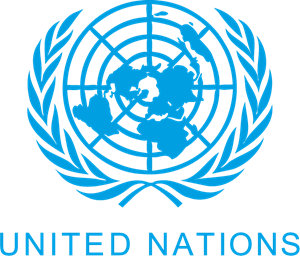
Associate Political Affairs Officer
- Kinshasa
- CDI
- Temps-plein
- Gather, select, verify and analyse information contained in communications and publications received from different sources, including internal mission reports and the press;
- Maintain up-to-date knowledge relating to political issues in general in the DR Congo and the broader Great Lakes region, and in particular as they affect the operational area for which the staff member is responsible;
- Keep abreast of latest trends and developments in the DRC and the broader Great Lakes region and provide updates and inputs on issues to senior officials and colleagues in the Mission;
- Monitor regional, national and provincial level political and security developments and provide advice to the Mission, especially with regards to ongoing international, regional and national peace processes and initiatives;
- Provide technical and substantive support for the implementation of the mandate of the Political Affairs Division in Mission HQ;
- Maintain contacts with other components of the Mission, UN international partners and government authorities on political and security issues, coordination and policy matters;
- Maintain regular contact with all relevant local political actors and civil society groups;
- Assist in compiling and producing daily, weekly, flash and other written reports as directed by the Head of Section;
- Assist with the preparation of internal and external meetings chaired by or attended by the Director and/or Head of the Political Affairs Section;
- Coordinate preparations for special visits and support visiting delegations as required;
- Monitor actions taken by intergovernmental groups, UN organizations, government and non-governmental organizations within assigned area of responsibility;
- Assist in programme design and management, through the implementation of programmatic and outreach funds;
- Participate in fact-finding and other joint missions within assigned area of responsibility;
- Assist the Head of Political Affairs Section in conflict resolution, mediation or crisis management initiatives by information gathering and analysis;
- Prepare PowerPoint presentations, briefings and other information packages for senior officials as directed by Head of Section;
- Participate in field visits in difficult circumstances;
- When working with (including supervising) national staff or (non-)governmental counterparts, including Implementing Partners (IPs), the incumbent is strongly encouraged to set aside dedicated time for capacity development through coaching, mentoring and formal and on-the-job training;
- Any other related duties as may be required.
Communication
Le travail d'équipe et le respect de la diversité
Planification et organisation
ProfessionalismeArea(s) of expertise:
- Crisis and emergency response
- Development programmes
Living conditions therefore vary between MONUSCO duty stations, with all usual amenities present in the capital Kinshasa, but only very basic conditions in remote duty stations in the provinces, where, for instance, there may be no guarantee of public power supply nor running water. The ability to live and work in difficult and harsh conditions of developing countries is essential.
Accommodation is very expensive in both Kinshasa and Lubumbashi. Supermarkets exist in the large towns (e.g. Bukavu, Kisangani), but consumer items are generally very expensive (as everything is imported). For food, local markets offer a much cheaper alternative.
All MONUSCO duty stations are considered non-family duty stations, except for Kinshasa, Lubumbashi and Entebbe which are now considered family duty stations, and most are currently under UN Security Phase III (“relocation phase”: internationally-recruited staff are temporarily concentrated or relocated to specified sites/locations). In addition to insecurity related to the relatively volatile political situation as well as various conflict situations, certain places are subject to increasing street and residential crime, including in Kinshasa and Goma.
Some degree of medical service is provided in all MONUSCO duty stations. Certain vaccinations are mandatory for MONUSCO personnel to enter the DRC, while others are compulsory for all other incoming persons. It is possible for incoming MONUSCO personnel, including UN Volunteers, to be asked to provide proof of some or all vaccinations, though this is unlikely. All UN Volunteers must ensure that they are up-to-date with all appropriate vaccinations, which should be clearly and properly endorsed in the International Certificate of Vaccination (“carte jaune”). Malaria is present virtually throughout the DRC, and it is therefore recommended to take prophylaxis.
The unit of currency is the Congolese Franc. The US dollar is the other preferred currency. It may be impossible to exchange traveller’s checks away from the capital city. Credit cards are usually accepted in major hotels only in Kinshasa. In larger towns and cities (e.g. Kinshasa, Goma, Bukavu, Kisangani), UN Volunteers are recommended to open US Dollar bank accounts, while in other places, banks may be absent (including ATMs) and VLA payments will be processed in cash. UN Volunteers have the possibility to send part of their allowances to a bank account abroad.
In addition to French, there are four major spoken languages in DRC, namely Lingala, Kikongo, Tshiluba and Swahili.